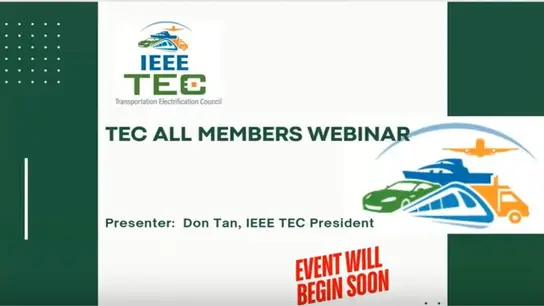Development of a Predictive Model for Electric Car Availability at Charging Stations Slides
Muhammad Asif Hasan
-
Members: FreeTEC
IEEE Members: $8.00
Non-members: $12.00Pages/Slides: 17
04 Jun 2024
Muhammad Asif Hasan (Member, IEEE) received the B.Tech. degree in electrical engineering and the M.Tech. degree in power systems and drives from the Zakir Husain College of Engineering and Tech nology, Aligarh Muslim University (AMU),Aligarh,India,in2006and2010,respectively,andthePh.D. degree in electrical engineering from the Indian Institute of Technology Patna, Patna, India, in 2021. He is currently working as an Assistant Professor with the Department of Electrical and Electronics Engineering, Birla Institute of Technology Mesra, India. His research areas include micro grid architecture, control and protection, renewable energy integration, demand side management of micro grid with electric vehicle, and modelling of solar photovoltaic. He is also working on projects granted from Indian Council of Medical Research and Department of Biotechnology, Government of India exploring new areas of human heart simulation and air purification device design development.
ABSTRACT
The proliferation of electric vehicles (EVs) is a vital component of the global effort to mitigate climate change and reduce dependence on fossil fuels. The wide spread adoption of electric cars is contingent upon the development of an efficient and reliable charging infrastructure. However, ensuring the availability of electric cars at charging stations poses a considerable challenge. This proposal aims to address this issue by developing a predictive model that can estimate the availability of electric cars at charging stations. The model would take into account factors such as the distance covered by the car, its state of charge, and the regular number of trips made in previous days.
The heart of this proposal will be the application of machine learning techniques to build the predictive model. Various algorithms, including regression, decision trees, and neural networks, will be evaluated for their ability to predict electric car availability at charging stations accurately. The predictive model will be trained using historical data and fine-tuned to improve its accuracy. A rigorous testing phase will follow, where the model's performance will be evaluated against real-world scenarios and data from charging stations.


